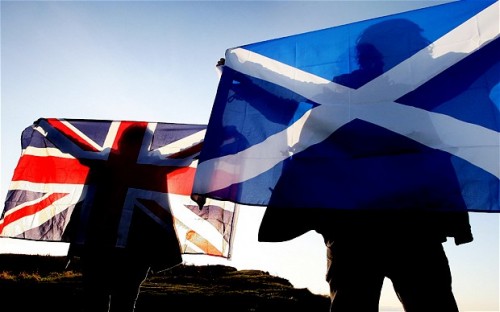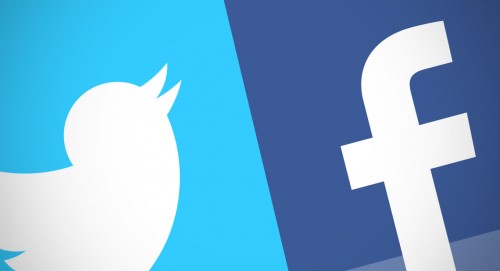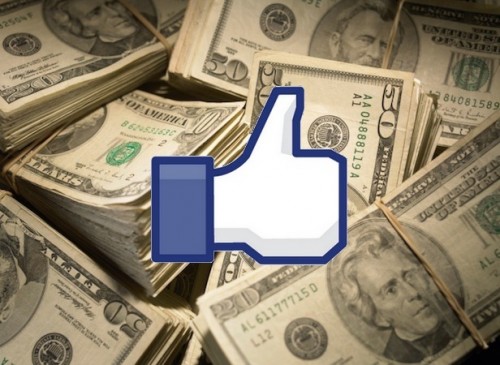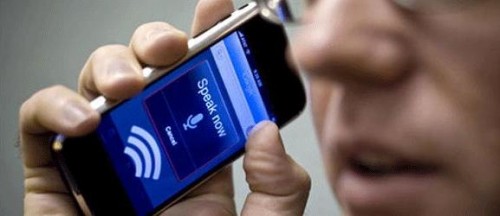2014 27
Easy steps to decrease our Energy Intensity
Published by MartinVarsavsky.net in General with
Energy intensity is a measure of the energy efficiency of a nation’s economy. It is calculated as units of energy per unit of GDP.
This post includes thoughts of Jack Hidary and Nouriel Roubini, and myself and it is based on a conversation we had last night during dinner. It’s about the “low hanging fruit” list of the measures that governments, corporations and citizens can take to reduce emissions and save natural resources: to lower energy intensity of the global economy.
I start with a concrete initiative to illustrate the point. Jack Hidary helped pass a law in NYC that demanded that taxis should be hybrids. The Ford Crown Victoria taxis that were standard for the NYC fleet before that law did 11 MPG. A Toyota Prius gets 48MPG in NYC. Now by adopting hybrids the average consumption of the whole fleet is around 28MPG. Now think of this in scale. Using hybrid cards, will cut average oil consumed per mile traveled in the US cities by half.
Using electric cars: in the US all energy from coal and nuclear plants is buried on the ground at night. Electric cars can charge at night using this energy so going electric could have very little extra cost for society and savings are huge. Challenges with batteries remain, in a Tesla the batteries alone cost more than a Toyota Prius, but their cost is going down rapidly, the transition to electric will happen. Electric cars can also be used to store energy and to re use this energy when it’s needed for something other than transportation. Trucks however be natural gas powered and not electric, that also saves energy and emissions. The transition will be gasoline, to natural gas in some cases but in most gasoline to hybrid to electric for the next 20 years.
The Sharing Economy: Nouriel was fascinated by the impact of the sharing economy and the fact that young people do not have issues with sharing in general. Sharing cars individually a la Uber does not result in less miles travelled (except those saved looking for parking) but results in many less cars being made. As both sharing and pooling becomes more common (Uber just introduced pooling) then we achieve less cars being made and used. Sharing economy companies like Fon make better use of telecom infrastructure, AirBnB of real estate, and there is a long list that overall make better use of existing resources. We now have the first generation who lives worse than their parents in the US, sharing creates a wealth effect that counters the sad reality of declining incomes.
Smartphones Economy: It is very complex to understand if smartphones make societies use less resources and save on energy. Google is the largest consumer of electricity in the US and probably in the world, those servers that do your searches need incredible amounts of power. But at the same time the smartphone economy make us save a lot of energy and resources. One example of many is Google Maps helping us finding shorter and freer routes to our destinations. And the app economy in general that enables a much more efficient use of any imaginable resource. Internet enabled individuals make more informed decisions about almost anything they do or consume.
Another obvious move is to switch to intelligent thermostats like the Nest that distinguish when you are at home and when you aren’t and adjust AC and heating accordingly. Geofencing via apps makes this distinction unnoticeable for the owners.
LEDs are awesome, they give you the same amount of luminescence for 15% of the energy. Lights consume around 20% of the energy of the average home.
Bicycles: bicycles originally made it as a form of interim transport until individuals could afford cars. Well now people have realized that bikes are ideal for distances of 5 miles or less and they save an incredible amount of energy use and resource use. The message to drivers is, that bike that see on the road is not a bike, it’s one less car.
Insulation is important. Sometimes simple improvement in insulation of walls, windows, roofs can reduce energy requirements by 30% or more.
Installing solar panels for electricity is becoming more and more competitive. Still they require a subsidy but in the US the subsidies are there.
Installing solar thermal for hot water, pool heating and to reduce heating bills in sunny places. This is becoming more and more common, especially in the Mediterranean countries of Europe.
Another trend that is making the world more energy efficient is dense urbanization. Although this is counter intuitive to some Manhattan is much more energy efficient than nearby New Jersey or Long Island where everyone lives in their own home with a garden. High rise buildings are more energy efficient than individual homes. People who move around in public transportation and walking are healthier and more energy efficient than people who have to travel long distances from suburbs to urban centers alone in their cars.
2014 27
How to charm the Catalans out of independence
Published by MartinVarsavsky.net in General with
Spain may break up. If it does it will be because Madrid has been deaf to the feelings of the Catalans. The Catalans signed a Constitution in 1978 that said that should they ever want to become independent all of Spain would have to agree. This was a big mistake on their part. Because there is no way independence will ever happen in this framework. If there was a vote now in of Spain around 80% of Spaniards would vote against Catalonian independence, but around of 54% of Catalans would vote in favor in a Catalonia-only vote, which is what they want to have this Nov 9th. This is partly out of their desire to be independent but also because Madrid has told them that they have to live by the 78 Constitution no matter what. That even if most of them dislike being part of Spain they have to stay in. In my view Madrid and the rest of Spain should allow the Catalans to vote for their independence but with time to win them over again. And in those years it should first negotiate the exact conditions of their independence, and then go on a charm offensive as the British did. Most likely during an improving economy. If the Catalans become independent they could be out of the EU, out of the euro, etc. There are so many unknowns that I think it is possible to win against independence by truly showing more cons than pros. Moreover the Catalan leadership has been incredibly corrupt. Jordi Pujol one of the biggest promoters of Catalonian nationalism and leader of Catalonia for many years has made a huge fortune for him and his family out of the Catalonian people. Catalan leaders have issued dangerous levels of local debt and Catalonia was recently saved from absolute bankruptcy by Spain. Catalonia, as opposed to the Basque region who diversified its industrial base, has followed economic policies that were as ill conceived as those of Madrid. Catalonia has based too much of its investment on infrastructure and debt, overextended its welfare state and has achieved slightly worse results than Madrid. But by forbidding debate on independence what Catalans see is the negative of staying together. And they do have a point when they argue that they, as well as Madrid, give too much of their income to the rest of Spain. But this is something that should be renegotiated all over Spain, setting limits on regional transfers and making some regions of Spain manage slightly more on their own. This is not a Catalan problem, it’s a Spain problem. Both Madrid and Catalonia give around 8% of their GDP to Andalusia, Extremadura and so on and this should be modified. But as it stands, the existing Constitution is just not fair on the independence issue and will lead to civil disobedience. The Catalans may become independent in spite of the Constitution because the rest of Spain should not use military force to keep them in the Kingdom. Dialogue and showing the positives is the only valid unionist strategy. Personally I believe that Catalans have the right to be independent and as a Spaniard I see my objective that they choose not to do so, not that they are forced into the union. And I think there are enough valid reasons to stay united. It’s time to change the slogan from “España a la fuerza” to “Juntos molamos” o “mejor juntos” – better together as the British said.
Related articles
2014 26
iPhone 6 vs any Android
Published by MartinVarsavsky.net in General with
I have simultaneously used an iPhone and an Android for many years. Two pockets, two phones, two carriers. Verizon Android and T-Mobile iPhone in the USA Tuenti iPhone and Vodafone Android in Europe. But for a long time, my favorite phones had been Androids. Until this month Androids could do many things that iPhones failed at. You had a wide choice of size and my favorite screen dimensions were around 5′ bigger than any iPhone. Sharing on Android was much better, you could share any service with any service, iPhone picked winners. Android allowed WiFi apps like our own Fon app, iPhone did not. Some phones like the Samsungs came with replaceable batteries and by 5pm every iPhone I had was dead. So were the Samsungs but I could change the battery. Lately Samsungs like the S5 became waterproof and that was awesome during the summer. And then there was SwiftKey, the multilanguage keyboard that read my mind (because it read my Gmail), the keyboard that could guess whatever word was coming next in whatever language, the keyboard that spared me from having to use that horrible language changing globe of the iPhone clearly designed by monolingual people. But I still carried iPhones. The iPhones I used for other reasons. One, a big one is design. They were always the best looking phones. I just liked them as objects. Video and photography, no matter what Android makers did, they could never beat the iPhone neither the photo apps nor the cameras. And games of course. So many more games and better games for the kids, since we all love games and sports, as while for adults there are options like indoor golf simulators which are fun for them as well. In general almost every app looked better and worked better on the iPhone. But what good was all this if the iPhone would be too small to type in, would only work with one language at a time and its battery would die by 5pm? Using a golf release trainer can also add a fun and effective way for adults to improve their swing technique at home.
Well I am here to report that my new iPhone 6 is the first phone since Android became competitive that beats any Android I now have. And currently I have an HTC M8, an S5, a Moto G, and a OnePlus One which is a very special yet buggy high end Android phone. Yes I am still hesitant about the non replaceable battery in the iPhone 6, I will have to test it will, see if I can last all day. But the iPhone 6 at 4.7in is the perfect size, it is incredibly beautiful, thin and light, it abandoned the “we are better keyboard dogma” and got SwiftKey, it allowed WiFi profiles that are almost as good as WiFi apps for Fon, it came with 128GB of memory so I can get a large supply of Spotify extreme quality songs and all the games for the kids they want. Before I used to always be on an app diet, especially with the apps for Leo (7) and Mia (3), games that take over 1GB each. Now we can app binge and then put them on a game diet, but with choice. And the iPhone 6 is far superior at video and photography. After the iPhone 6, iPhone it is now. Will continue to use Android and iPhone but my time on phone ratio will radically shift towards iOS. Having said this, I don’t want to end without bringing a key factor here and that is cost. The iPhone costs $850. Yes $850 forget about those rip off offers with contracts, that is what it really costs, what Apple gets. And for $129 you get a an unlocked, no contract Moto E. A Moto E is not 15% of the phone an iPhone 6 is. If you, like most of humanity, are a person who lives on a budget, the Moto E is 80% of an iPhone 6 for 15% of the cost. What Android has that Apple never will, is the ability to bring 84% of humanity to the Internet. And for that we should thank Google. Even a low end iPhone costs 4x as much as a Moto E. And this is why iOS is only in 11% of all smartphones sold in the world right now. Moreover Android still rules at sharing, first it gives it OS at no cost to others and that is why their phones are so much more competitive, but also I love the way Android allows you to share from anything to anything. I find it impolite that Apple picks winners and losers by greatly limiting sharing among its preferred services.
Still even Google (trends) will tell you that with 11% global marketshare, iPhone is always more news than Android.
2014 7
England and Castile, a parallel history
Published by MartinVarsavsky.net in General with
 As I read that Scotland may become independent in 11 days, I realize that the English and the Castilians kingdoms have had a similar historical fate. Both first conquered, annexed or joined together nearby kingdoms and territories (via treaties/marriages) and became what is now Spain and UK. After that was accomplished, both then went overseas to conquer a remarkable chunk of the world. As a result English and Castilian Spanish became the two largest Western languages. So these two very small nations, the English and the Castilians had at one point incredible empires with what today would be half a billion people (Castilians) and over a billion people (England). In the late 1700s, and mostly during the 1800s and some remains in the 1900s, these colonial empires fell apart, to the point that what remained of the former glory was the original core Kingdoms of what today is UK and Spain.
As I read that Scotland may become independent in 11 days, I realize that the English and the Castilians kingdoms have had a similar historical fate. Both first conquered, annexed or joined together nearby kingdoms and territories (via treaties/marriages) and became what is now Spain and UK. After that was accomplished, both then went overseas to conquer a remarkable chunk of the world. As a result English and Castilian Spanish became the two largest Western languages. So these two very small nations, the English and the Castilians had at one point incredible empires with what today would be half a billion people (Castilians) and over a billion people (England). In the late 1700s, and mostly during the 1800s and some remains in the 1900s, these colonial empires fell apart, to the point that what remained of the former glory was the original core Kingdoms of what today is UK and Spain.
But now, over 200 years after key colonies were lost, the early nearby unions, Scotland and Catalonia, may also become independent. Five or more centuries later the mighty kingdoms may go back to their humble origins. Why have the Germans have had such a tendency for reunification, and the British and Spaniards for fragmentation, could be the subject of many books. Probably it has something to do between what is seen as a union of equals vs an imposed culture. Or maybe it is a perception by the Scots and the Catalans of economic benefits to be obtained via independence. But whatever the motivations are, reality is that as of today, half of the Scottish want out and may get out of the UK on September 18th and a similar percentage of Catalans seem to want out. I am not sure how long the Kingdom of Spain will stay together under the framework of the 1978 Constitution. Personally, union or independence in both countries is fine with me, I can see both sides of the arguments. But what is not fine is to keep people in a union they don’t want. Better to vote and see.
In the case of Catalonia, if there is a referendum, I would hope that it goes beyond a yes or no for independence. What is needed is a previous negotiation that would give more clarity to voters on key issues such as, would Catalonia be in the Euro or out, in the EU or out, what part of the Spanish national debt would it take with it, would it vote as a whole for independence or per province (if Spain is divisible, so should be Catalonia) and so on. I am in favor of a referendum in both cases, but with very clear visibility of what yes or no means the day after.
(Photo credit: The Telegraph)
2014 10
Facebook and Twitter, the admiration is not mutual
Published by MartinVarsavsky.net in General with
 Lately Facebook is trying to be more like Twitter and succeeding. And there’s good reason for that.
Lately Facebook is trying to be more like Twitter and succeeding. And there’s good reason for that.
Before Facebook, it was you telling your friends what you are up to, and them doing the same, mostly in writing or via photos. This had a problem that for some “Murphy’s law of Facebook”, those who you cared about the most, posted the least and those who you wanted to learn from the most, were silent. On top of that, Facebook had the “toddler challenge”. Toddlers don’t make friends because they want lots of attention, but can’t give attention. Facebook became a community of attention seekers. Twitter saw this. And what Twitter did to escape this problem is to do away with “befriending” and start an asymmetrical platform from the ground up. A community that by design accepts the reality that talent is unevenly distributed. Twitter killed reciprocity and allowed a few people to lead over many others, those who were truly interested Twitter rewarded with an audience. Facebook then saw a successful formula in Twitter and partly copied it allowing those who generate interest to have followers as well. But that was a secondary feature and Facebook could never give up being a friendship platform, a symmetrical platform of personal news. A platform in which everyone is supposed to generate similar levels of interest. But lately as it became clear that that wasn’t the case, Facebook brought in more Twitter-like elements. Especially media. The latest are “trending articles” for you to follow important media events, and “related articles” a feature which also drives you towards media. These new features were so successful that many media publications now, such as Business Insider, Wired and others, get more traffic from Facebook than from Google. Facebook’s evolution from friends only, to followers and friends, and now to friends, followers and media is working and is making people spend more and more time on Facebook. And in a way it allowed Facebook to sell ads using news organizations, something that not even Google was able to do.
Now the part that I don’t understand is the lack of admiration from the other side or why Twitter never copied what worked best at Facebook. To me what would be crucial is to tinker with the 140 character religion. The 140 characters have forced Twitter’s users to come up with all sorts of ways around it. People attach pictures of long texts, attach links that then Twitter shows or lately Marc Andreessen has come up with a numbered style that many have copied to make their tweets longer. And if there is one place where it really doesn’t make sense to have 140 characters is in DM. If Twitter had made DM unlimited in characters and able to incorporate pictures, videos, and even location early on it would have been a real competitor to now Facebook-owned WhatsApp and possibly to Snapchat as well if it had allowed true privacy. It would have then dominated the public and the private spheres. Twitter had the right concept but they never went full force in the private exchange world, and WhatsApp came out of nowhere and ate their lunch, all $19bn of it.
(Photo: Matchbox)
2014 24
Facebook is now worth more than Amazon and Coca-Cola
Published by MartinVarsavsky.net in General with

Much to the surprise of many, Facebook is now worth more than Amazon, IBM, Coke, it is the 15th most valuable company in the world. Some may call it a bubble, a crazy P/E, but however way you look at it Facebook is hugely successful. This is in my view a key reason for their success.
One of the most common criticisms of Facebook is that there is a bias towards positive news. That people tend to post many more good things than bad things that are happening to them. That few post such things as “my life sucks and I don’t know where I will get the energy to go to my boring job tomorrow”. But maybe that is actually a significant part of the success of Facebook and why it is so popular, the tendency towards good news. What Facebook made clear is that people wanted good news. The alternative to Facebook is media news and they have exactly the extreme opposite bias. In media almost all news is bad news. After a lifetime of bad news people were craving for a new form of media focused on positivity. And friendship was the missing link to make positivity feel real. It is the combination of proximity and positivity that makes people want to be on Facebook. Facebook nailed it and is now worth close to $200bn.
(Photo: WebProNews)
2014 22
Blame the Jews
Published by MartinVarsavsky.net in General with

Muslim history over the last decade has been extremely sad. Hundreds of thousands of Muslims have died in armed conflicts. Over 99% of them died as a result of the European/American invasions of Iraq and Afghanistan and in the hands of fellow Muslims in the Syrian civil war, the ISIS conflict, the Shia Sunni conflicts, the Egyptian, Libyan internal fights, the fight against the Taliban in Pakistan and others. But this week after Hamas indiscriminately sent rockets on civilians all over Israel, and Israel retaliated striking on military targets, sadly killing innocent civilians who are not the target (as opposed to the Hamas rockets that do explicitly target civilians) but are used as human shields and this is happening when Hamas knows that the moment they stop throwing rockets, the Israeli retaliations will stop, I am shocked to see my Facebook and Twitter feeds go insane with accusations to us, the murderous Jews. If you are not a Jewish reader you have not idea what it is to be a Jew during the Gaza conflict and the things that people say to me, a diaspora Jew.
So what can I conclude. That when Jews defend ourselves we are horrible people but the USA, Spain, France, UK and all the countries of the Iraq/Afghanistan coalition, who committed horrible atrocities in the Fallujah attack are not? Or when Muslims massacre Muslims in Iraq, Afghanistan, Syria, Libya and other countries, you are nowhere to be found protesting? Where are you on my social media when Bashar Al Assad mass-murdered hundreds of thousands of his own? Why is it murder when Israelis build a wall to protect themselves from Palestinian terrorism and not when Spain builds one in Ceuta in which more people have died trying to cross it? Why are the same policies that others apply with much greater impact so worthy of condemnation when Israel adopts them? Why is there such a SELECTIVE INDIGNATION vis a vis Israel and Jews in general? Of course what Israel is doing now in Gaza is tragic, but why is my social media silent with the vast majority of Muslim deaths unrelated to Israel?
Have you thought of what it would be like to have to run to a bomb shelter at a minute’s notice with your loved ones many times a day? Can you imagine London under attack? Madrid under attack? New York under attack? Paris under attack? Well that is Tel Aviv when Hamas attacks and it’s happening now. Even the Palestinian UN representative said that Hamas rockets aimed at Israeli civilian population are a crime against humanity.
Please think again before you post. I have also condemned Israel in the past and Israel does have to work harder at reaching peace with the Palestinians. The Palestinians deserve their country and deserve it as soon as it can be done at peace with Israel along the lines of the Oslo treaty. Israel must find a way to contain its own radical elements that block peace with the Palestinians. But Israel is not at war with Al Fatah in the West Bank, it is at war with Hamas in Gaza who wants to wipe the country out and are financed by Iran who uses them to fight Israel. This is the case even though Israel, paradoxically, pulled out from Gaza and forced settlers to leave risking a civil war. Media keeps calling this a Palestinian Israeli conflict but the majority of Palestinians are not with Hamas. This is a war against Hamas in which Israel uses missiles to defend its children and Hamas sadly uses its children to protects its missiles. If Israel really wanted to kill the children of Gaza it would do what Bashar al Assad did when he killed over 50,000 of his own children. Not even the death of one child is justifiable, not a single civilian casualty is justifiable, but Israel can wipe out Hamas and it does not and I have no doubt that if Hamas could wipe out Israel it would. Moreover the rocket attacks at this point have been effective enough to isolate Israel and most airlines are not flying into Israel for fear of Hamas attacks.
In the midst of the awful ISIS successes in Iraq and the Syrian war going on now, and in the height of the Sunni Shia bloody conflict, and the threat of a nuclear Iran, Israel is our hope to stop the radicals in the region. Israel is fighting Hamas, people who dream to see you, me, moderate Muslims, and everyone who believes in equality of men and women, rights of homosexuals, freedom of expression and freedom of worship or non worship, dead. We cannot allow Hamas, ISIS and other horrible forces of evil win over reasonable and moderate Muslims. Considering what Israel could do to wipe out Gaza, the way Bashar al Assad wiped out Homs, its response is incredibly moderate, reasonable, measured and as targeted as the situation allows. If you study casualty figures in Wikipedia you will see that the chances of a Muslim to be killed by a fellow Muslim or Christian are over 1000 to 1 than those of being killed by a Jew. Please stop attacking the right of Israel to defend itself and take a global view of what is going on in the region before taking sides. In my view the only reasonable request at the moment is to ask Hamas to stop sending missiles to Israel and for Israel to stop bombarding Gaza. And I hope that this happens as soon as possible and peace is restored.
(Photos: The Telegraph and AFP)
2014 2
Juan Carlos the King and Juan Carlos the man
Published by MartinVarsavsky.net in General with
I met King Juan Carlos on a few occasions, I also spent a couple of hours with him alone at his office. And what I saw was a great man who was trapped in a lifetime job he did not choose. A person who had to fight his own instincts to be a free man and struggle hard to stay on as King. And if he stayed on until today it was not because he loved to be King but because he loves Spain. Not royal Spain, all of Spain.
Most people think being King is a great job and blame monarchies for giving Kings or Queens this awesome position to a person who was not elected for it. But if people really understood what the job is like, most would refuse it. And I actually do know people who rejected that job in other monarchies. These are people who had the opportunity to marry a prince and did not, mainly because of the lack of freedom and constant public appearances that the job entails. Or people who abdicated to marry somebody they were in love with and wanted to lead a more normal life.
From what I saw, King Juan Carlos dream would have been not to be King. When he was younger he would escape from his King’s duties, drive somewhere in his car, try to be a free individual for a few hours. Being King is a daily obligation, not a choice.
The first time I met King Juan Carlos I had to dress with a special kind of tuxedo to dine with him in the royal palace. It was mandatory. And when I walked to greet him, my discomfort with wearing those clothes became so obvious that he read my mind and said. Hombre, Martín, ¿y tu que crees que a mi me gusta ir vestido así? (do you think I like to dress as a king?) and gave me a big smile. After that comment I felt at home in his palace. That phrase to me said it all about how he felt about being King. To me it meant behind Juan Carlos the King there is Juan Carlos the man. A funny, kind man who came to greet me with a charming, ironic comment. And in that meeting I realized how Juan Carlos the man, was actually greater than Juan Carlos the King. Yes, King Juan Carlos had shortcomings and his share of family scandals. But King Juan Carlos fought for democracy and led Spain through a period in which without him, paradoxically, democracy would have been more fragile. When I think of the Spain that he got at the start of his reign, and the Spain that we have, I am grateful to him. Everyone focuses on the fact that Kings are not elected, but few think of how Kings themselves do not choose what to do with their lives. Are we at their service or are they the ultimate public servants? In Europe’s constitutional democracies, it’s the latter.
2014 2
Where does the sky start?
Published by MartinVarsavsky.net in General with
Mia(2) and I went for a walk at our farm in Menorca when all of a sudden she asked me. “Dad can you carry me in your arms? When I am in your arms I can touch the sky” I was moved by her request and carried her in my arms until we arrived at an area of the farm with pre historic ruins. When we were there I asked her where else she felt like she could touch the sky. She told me she could touch it when she climbed to high places. I asked her to show me and she walked up to this stone fence and touched the sky.
So if you ever wondered where the sky starts, here is her proof, the sky starts at around 1.5m from the ground. She certainly convinced me. Now I know that the sky starts somewhere between Mia and I.
2014 25
Voice Recognition: Google vs Apple
Published by MartinVarsavsky.net in General with
After two decades of false starts I think voice recognition, or speech to text translation, has finally come of age. Lately in both Spanish and English I find I am able to speak and have smartphones transcribe most of what I am saying. This is true both in Apple and Google. But because I use an Android and an iPhone on a daily basis I wanted to test who has the best voice recognition technology, Apple or Google?
So what I did is simultaneously speak into the Mail app of my iPhone 5S and the Gmail app of my Android Samsung 5, both connected to the same Fon WiFi network with Movistar fiber optic service behind them, in Alcobendas, Spain. Then I sent emails to myself. And these are the results.

Apple Dictation
These is a test to determine which system works better if the voice recognition off the iPhone or the voice recognition of android so what I am doing is I am dictating two emails simultaneously door and iPhone and android on I’m checking which operating system understands me better
Google Dictation
This is a test to determine which system works better if the voice recognition of the iPhone or the voice recognition of Android so what I am doing is I am dictating to emails simultaneously 21 iPhone and Android on I’m checking which operating system understands me better
Even though both operating systems made mistakes Google made a few less and is the winner here. Especially because on Android you see each word as you speak and in iOS you have to wait until you finish and hit done to see how well your spoken English was transformed into written English.
And this is the test in Spanish:
Esto es una prueba en la que quiero comprobar la calidad del sistema de reconocimiento de voz de los dos sistemas operativos el de Google y el día todo lo que quiero ver es cuál de los dos sistemas entiende mejor mi castellano
Apple
Esto es una prueba en la que quiero comprobar la calidad del sistema de reconocimiento de voz de los dos sistemas operativos el de google y el de apoyo lo que quiero ver es cuál de los dos sistemas entiende mejor a mi castellano
In Spanish both Operating Systems did equally well. They both got everything right except the word Apple. But again I prefer the immediate feedback that Google gives you as you speak. Also Google did much better understanding my name out of all the email addresses. Apple had a much harder time on email address dictation, I don’t know why.
Spanish is my native language but I am very fluent in English so it is not surprising that there were a few less mistakes in Spanish.
My conclusion after this test is that both Apple and Google are finally offering true voice recognition but that Google has a slight advantage.




